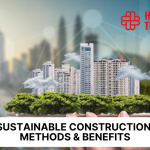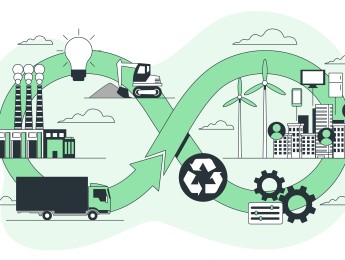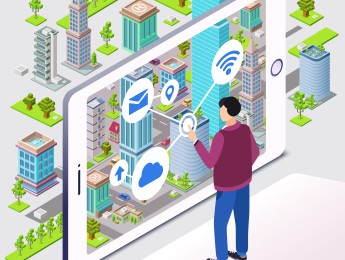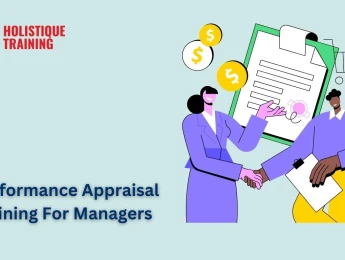Sustainable business management is a holistic approach that balances economic, social, and environmental considerations to ensure long-term success and positive impacts. It involves integrating sustainability principles into all aspects of a business, from strategic planning to day-to-day operations.
Sustainable business management emphasises responsible resource use, reducing environmental footprints, and fostering social responsibility. Companies adopting this approach often consider the triple bottom line, where success is measured by financial performance and social and environmental contributions. Sustainable business practices can lead to enhanced brand reputation, cost savings through efficient resource use, and a positive influence on the communities in which the business operates.
As environmental and social concerns continue to grow, sustainable business management becomes an increasingly crucial aspect of corporate strategy. It ensures businesses thrive while contributing positively to the planet and society.
Upon completion of this course, participants will be able to:
- Address challenges in sustainability, including climate changes, social pressures, and urbanisation.
- Establish a business case and demonstrate leadership for proactive measures.
- Navigate the regulatory environment and respond to international policy.
- Evaluate and enhance sustainability across value chains
- Integrate design, technology, and innovation to promote sustainability.
- Foster collaboration and form strategic partnerships for sustainable outcomes.
- Implement an action plan to address the organisation's social, economic, and environmental sustainability challenges.
This course is designed for anyone responsible for project management or planning future organisational changes. It would be most beneficial for:
- Business Owners
- Project Managers
- Operational Managers
- Financial Officers
- IT Consultants
- Data Analysts
- Supervisors
- HR Professionals
- Marketing Managers
- Sales Managers
This course uses a variety of adult learning styles to aid full understanding and comprehension. Participants will watch videos regarding data and insights into the potential future of technology and economy and how the changes will affect specific industries.
They will take part in a group discussion to understand the concerns for the future and uncover the key points of focus for businesses when moving forward with new projects. They will then construct a viable business case to make a change utilising various change models and theories to demonstrate the benefits the project will have based on the future economy, making a sustainable plan for the organisation’s next steps.
Day 5 of each course is reserved for a Q&A session, which may occur off-site. For 10-day courses, this also applies to day 10
Section 1: The Challenges & Opportunities in Future Change
- Strategic adaptation to technological shifts.
- Sustainable business practices in a changing landscape.
- Digital transformation and its impact on operations.
- Navigating regulatory changes for business success.
- Resilience and crisis management in uncertain times.
- Innovations in marketing strategies for the future.
- Talent acquisition and retention in a dynamic environment.
- Global market expansion: risks and rewards.
- Financial planning in the face of economic fluctuations.
- E-commerce and the evolution of consumer behaviour.
Section 2: Creating a Viable Business Case for Change
- Defining clear objectives and outcomes.
- Conducting comprehensive stakeholder analysis.
- Crafting an effective change management plan.
- Identifying key performance indicators (KPIs).
- Assessing risks and mitigation strategies.
- Budgeting and resource allocation for change initiatives.
- Communicating changes vision and benefits.
- Monitoring and evaluating progress.
- Adapting strategies based on feedback and results.
- Developing a sustainable business case for long-term success.
Section 3: Engaging Relevant Stakeholders
- Identifying key stakeholders.
- Stakeholder analysis techniques.
- Effective communication with stakeholders.
- Building stakeholder relationships.
- Stakeholder engagement strategies.
- Managing stakeholder expectations.
- Stakeholder collaboration in projects.
- Stakeholder feedback and input.
- Stakeholder involvement in decision-making.
- Addressing stakeholder concerns.
Section 4: Regulatory & Environmental Considerations for the Future
- Environmental impact assessments.
- Compliance with environmental standards.
- Regulatory changes and updates.
- Sustainable practices in compliance.
- Environmental risk management.
- Future trends in the regulatory landscape.
- Green technologies and innovations.
- Corporate social responsibility in regulation.
- Climate change policies and compliance.
- Circular economy principles.
Section 5: Technology & Design of Tomorrow
- Design thinking for innovation.
- Artificial intelligence for business solutions.
- User-centred design principles.
- Digital transformation strategies.
- Internet of Things (IoT) applications.
- Cybersecurity for future business technologies.
- Data analytics and business intelligence.
- Blockchain for secure business operations.
- Augmented and virtual reality in business.
- Human-machine collaboration.
- Sustainable design practices in technology.
Section 6: Production & Consumption Predictions
- Supply chain optimization.
- Circular economy concepts.
- Consumer behaviour analysis.
- Personalised production models.
- Future of retail and e-commerce.
- Automation in production processes.
- Environmental impact of consumption.
- Green product design.
- Forecasting consumer demands.
Section 7: Communication & Marketing
- Social media for brand building.
- Data-driven marketing decisions.
- Customer relationship management.
- Influencer marketing in the future.
- Emerging communication technologies.
- Branding in the digital age.
- Crisis communication preparedness.
- Sustainable marketing practices.
- Global marketing strategies.
- Storytelling in marketing.
Upon successful completion of this training course, delegates will be awarded a Holistique Training Certificate of Completion. For those who attend and complete the online training course, a Holistique Training e-Certificate will be provided.
Holistique Training Certificates are accredited by the British Assessment Council (BAC) and The CPD Certification Service (CPD), and are certified under ISO 9001, ISO 21001, and ISO 29993 standards.
CPD credits for this course are granted by our Certificates and will be reflected on the Holistique Training Certificate of Completion. In accordance with the standards of The CPD Certification Service, one CPD credit is awarded per hour of course attendance. A maximum of 50 CPD credits can be claimed for any single course we currently offer.
- Course Code PO4-119
- Course Format Classroom, Online,
- Duration 5 days














